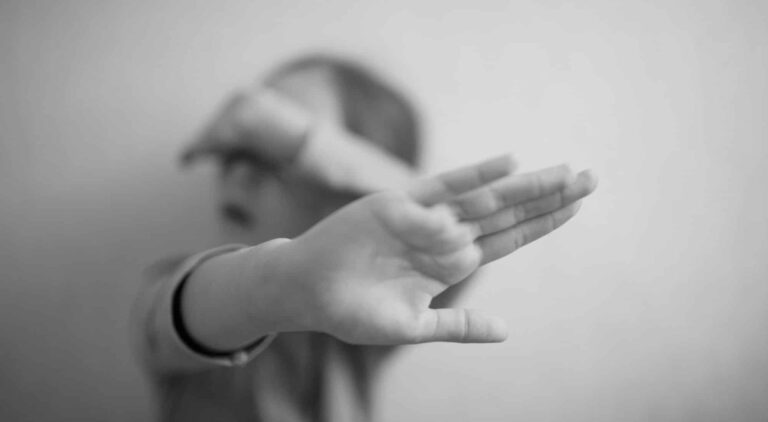Annually, over 4 million incidents of child abuse are documented by authorities in the United States, as reported by Childhelp.org. Child abuse can manifest in various forms, including physical, sexual, and emotional abuse, neglecting medical and physical needs, or social maltreatment.
The Psychological Effects of Childhood Abuse on Mental Health
Experiencing abuse or neglect during childhood can have profound consequences on both mental and physical health. Whether it’s a single incident of inappropriate sexual conduct or a pattern of ongoing emotional or physical abuse from a guardian, the effect on a child is severe. The Centers for Disease Control and Prevention (CDC) indicates that adverse childhood experiences (ACEs) are linked to approximately 1.9 million heart disease cases and 21 million cases of depression. In addition to depression, other mental health repercussions from such experiences can include anxiety and post-traumatic stress disorder (PTSD).
According to NPR, another psychological consequence of childhood abuse includes challenges with emotion and behavior regulation. Impulsiveness stemming from these experiences can hinder success in school, work, relationships, and personal life, potentially leading to health issues such as addiction or eating disorders. Individuals often seek various methods to cope with or soothe the lingering impacts of abuse, which can lead to further mental health struggles.
Furthermore, child abuse can foster feelings of shame regarding one’s past or self-identity. This shame directly affects body image and self-esteem. Europe’s Journal of Psychology suggests that low self-esteem can create a belief that one is incapable of handling stress or even experiencing happiness, contributing to depression and addiction. Additionally, as noted in the Journal, feelings of shame and diminished self-worth can interfere with relationships, education, and career opportunities. The prevalence of child abuse is a widespread issue with lasting, serious consequences.
The prevalence of child abuse is a widespread issue with lasting, serious consequences.
Preventing Child Abuse Through Intervention and Treatment
Reducing child abuse statistics and their long-term repercussions relies heavily on prevention, intervention, and treatment strategies. For instance, offering parenting education and stress management resources can help lower abuse rates. When parents feel supported and learn effective coping mechanisms, they are less likely to project their distress onto their children. Additionally, training coaches, educators, and healthcare providers to recognize signs of child neglect is another effective method of intervention. When those involved in children’s lives are aware of warning signs, they are better equipped to report potential abuse, ensuring children can be removed from harmful environments.
Treatment Options and Empowerment
Options for treating child abuse include individual, group, and family therapy utilizing various therapeutic approaches. The sooner treatment is accessed, the more favorable the results. However, it is never too late for adults seeking to address their childhood trauma. Supporting families in locating necessary services for their children and ensuring access to these resources can also help lessen the adverse impact of abuse on a child’s life.
Individual Therapy
Individual therapy serves as an excellent choice for both children and adults needing to heal from the effects of child abuse. This approach can be customized to address specific needs. For instance, different therapeutic approaches may benefit children who suffered emotional abuse compared to those who experienced sexual abuse. Professionals specializing in childhood trauma can create a safe and supportive environment to explore healing options, including Cognitive Behavioral Therapy (CBT), play therapy, trauma-focused therapy, and more.
Group Therapy
Group therapy can be beneficial for children, teens, and adults who have endured abuse. It provides a secure setting to practice social interactions, build communication skills, foster empathy, and enhance emotional regulation, which might be impaired as a result of abuse. Through group therapy, children or adult survivors can connect with others who have had similar experiences, validating and normalizing their feelings and helping to alleviate shame and isolation.
Family Therapy
Family therapy allows for safe, guided conversations, prioritizing the child’s welfare while helping parents and family members navigate relationship dynamics, communication styles, and conflict resolution. It also educates everyone involved on what constitutes child abuse. Parents might not realize the harm they inflict, especially if they themselves grew up in environments devoid of proper parenting tools or knowledge. Family therapy illuminates the situation and offers healthier ways for family members to interact and progress together.
Reporting Child Abuse
Addressing child abuse before further harm occurs begins with reporting it. Child abuse can be identified and reported in various ways. The CDC’s “Child Abuse and Neglect Prevention: Resource for Action” emphasizes the necessity for primary care providers to be trained in recognizing neglect risk factors, such as parental depression, substance misuse, excessive stress, harsh disciplinary methods, and domestic violence. Prompt intervention when these signs become apparent can help parents improve their mental health and lifestyle, which, in turn, may prevent child abuse. Teachers, friends, and family members can also watch for these indicators. If you suspect there may be a risk of abuse, encourage the family to seek professional therapy and support.
Addressing child abuse before further harm occurs begins with reporting it.
If you think child abuse is currently happening, call 911 for immediate concerns. For ongoing issues, ChildWelfare.gov provides a state-by-state listing of numbers to report maltreatment. Additionally, you can reach out to the Childhelp hotline for further assistance on recognizing abuse and understanding the reporting process.
Healing and Support
If you are an adult grappling with the lasting effects of child abuse, The Meadows is here to help. We recognize the implications of childhood trauma—be it emotional, physical, sexual, or a combination—and understand that trauma is often the root cause of many mental health challenges. Past experiences can linger, impacting the present, but treatment at The Meadows can help you move forward. We believe that effective healing combines a range of powerful and distinct methodologies that promote support, discovery, and recovery. Above all, we are dedicated to helping individuals achieve recovery with the appropriate assistance. Reach out to us today, and let us link you with resources tailored to your unique recovery journey.


